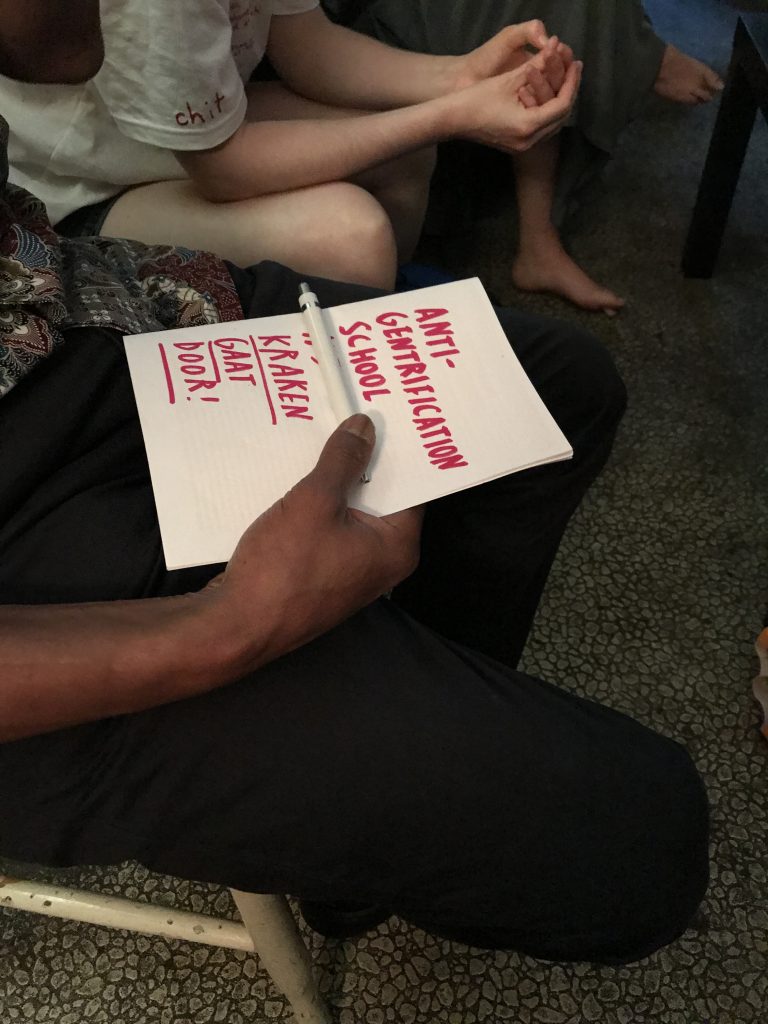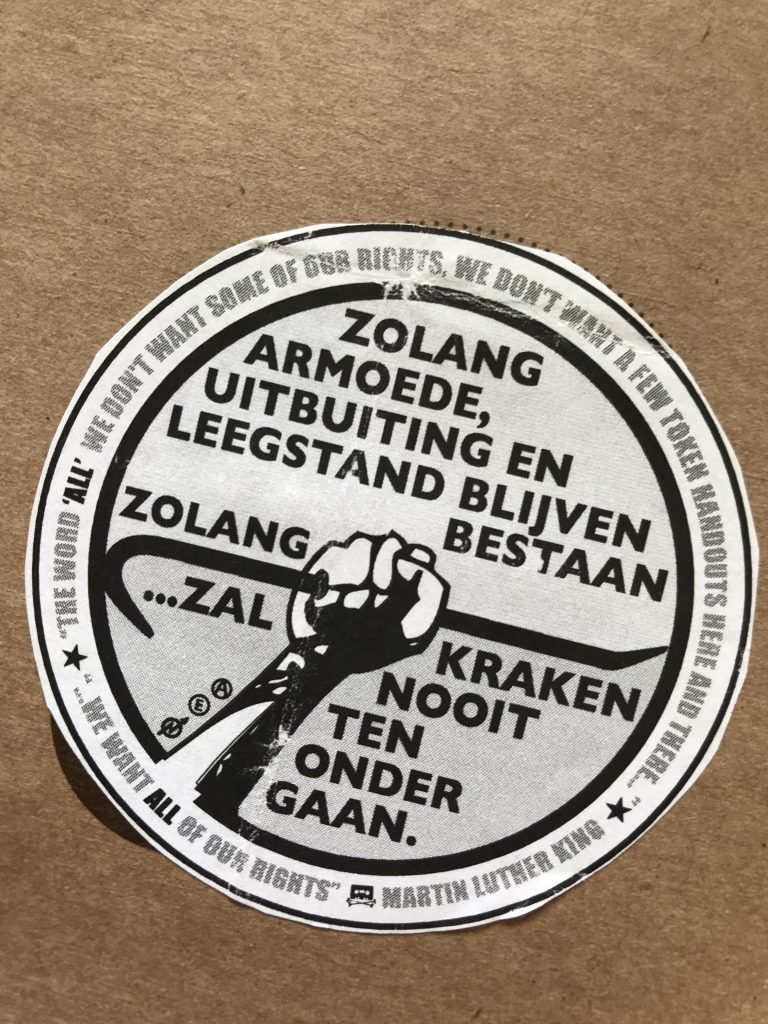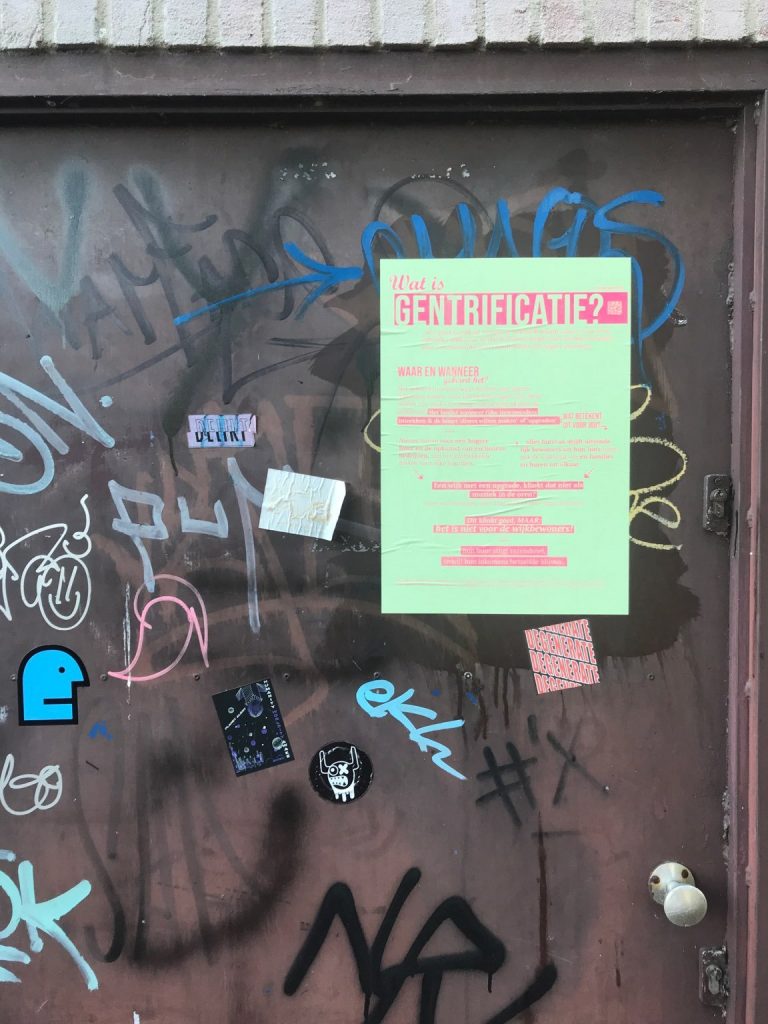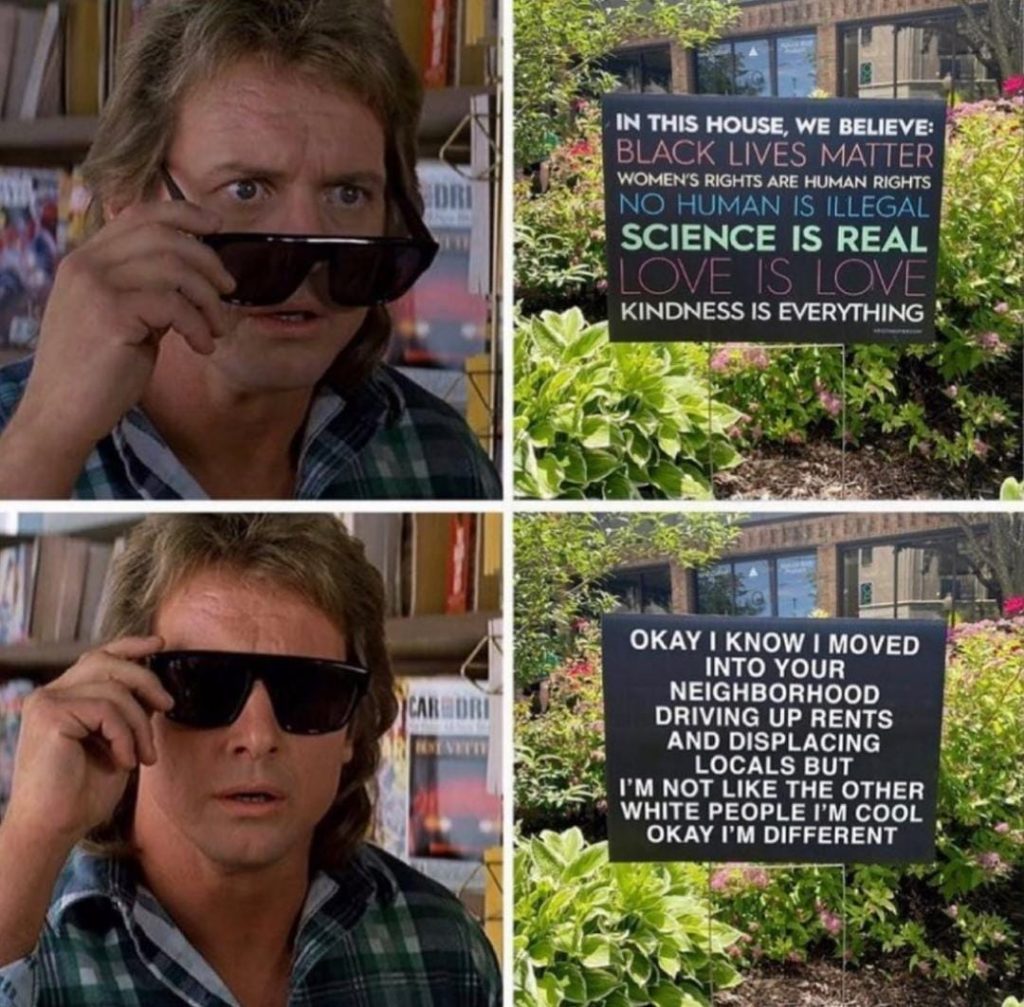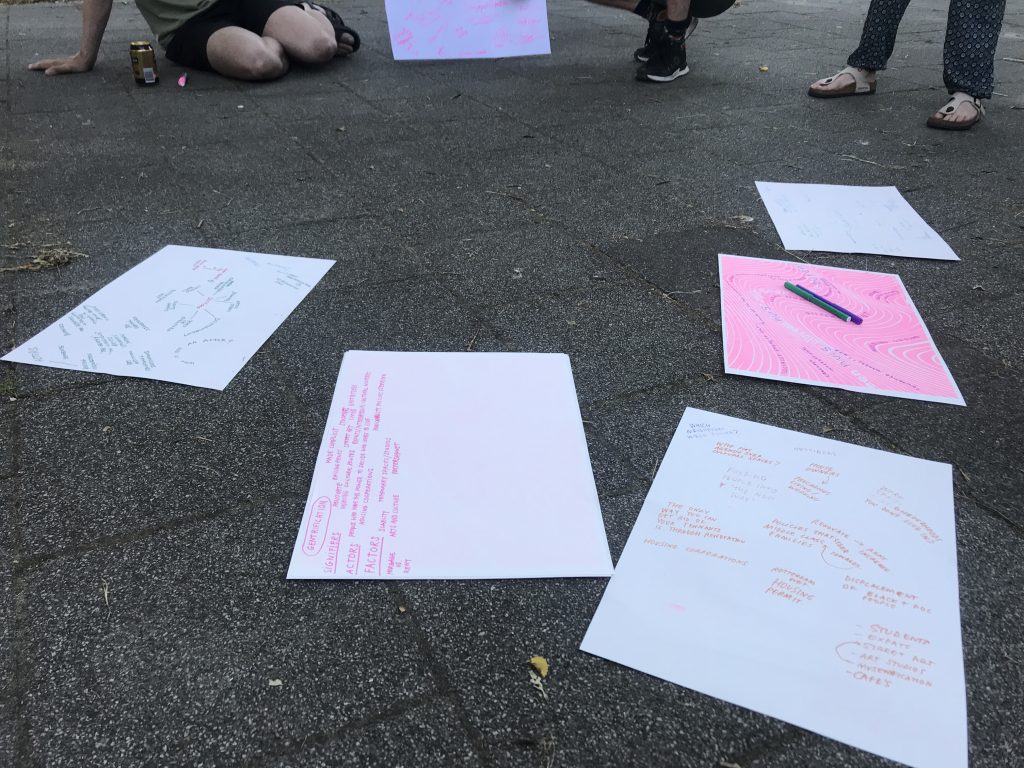Wednesday 7th July
19.00-21.00
The Garage, Jacob Catsstraat 43B, 3035PC Rotterdam
This session was an emergency gathering in The Garage, a squatted [kraak] living and social space in the North of Rotterdam. The Garage is threatened with imminent eviction [update:the group have moved out]. In solidarity we brought AGS to their space and focussed on the role of squatting in Anti-gentrification struggles, focussing on housing as a right and not as a commodity. How does the ever-increasing criminalisation of squatting [kraak] in the Netherlands feed into processes of gentrification? How can squatting [kraak] be defined as de-growth? We collective read SQUAT THE CRISIS! and spoke with members of The Garage about their projects and current situation. From The Garage, a self-organised community kitchen called Rotterdamse Rats cooks free meals and serves the food on the Pijnackerplein every sunday using food waste. Several people also depend on space for living, who now need to find new accommodation immediately.
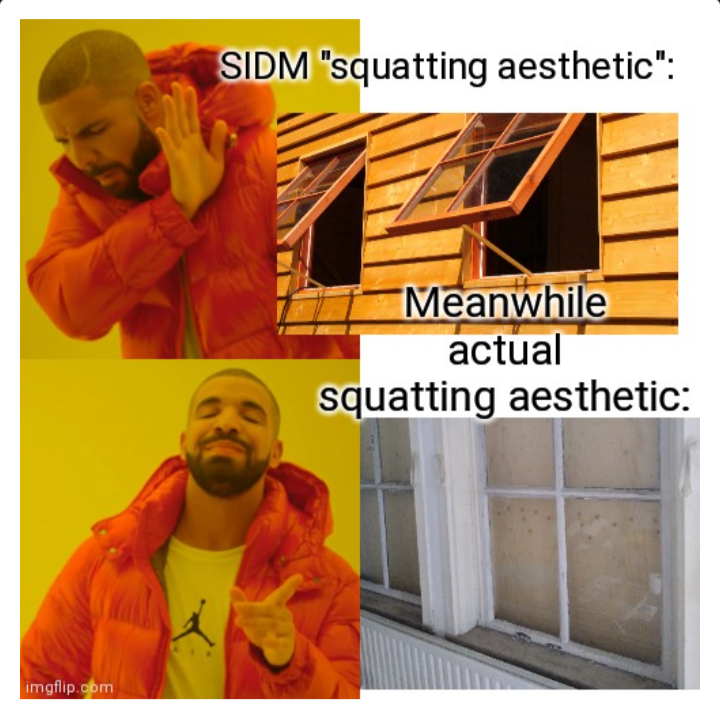
We discussed the ongoing control of such anarchist projects through limited options for semi-stable spaces to operate. For example, Stad in de Maak can be helpful with offering space that they manage on behalf of Havenstader to such groups at the Rats, but on which conditions? And does this stay true to the groups anarchist ethics? What does it mean for space in the city to be managed and controlled as such?
How does the increased policing of squatting affect squatters these days? How does the ‘memory’ of squatting in the Netherlands and the residue that this leaves within practices and policies now affect current possibilities to occupy space?
Is the actual action of squatting a counter to gentrification? Should squats remain political in order to resist it? We went over this question a few times and ended partly at this: squatting primarily is a functional way for people who can’t afford housing to have a place to live. In the current system, how can we assist the safety of squatters, especially those who may be undocumented and precarious? Someone told stories of how they were involved in squatting in the 70’s with Suriname communities, radical actions done out of necessity.
We thought a bit about anti-anti-kraak… how to raise consciousness about the fact that anti-kraak is about being against squatting…how did the term lose its meaning, or how did we forget? Original anti-kraak was about taking the lifestyle of squatting and making it depoliticised, rich kids using empty spaces to party. Now artists often need to rent studios in anti-kraak as their is such a limited amount of work space. How can people renting in anti-kraak act in solidarity with squatters?
Links/Resources:
- Download the zine of texts for this session here.
- Massih Hutak : Designer Fiets (prod. Massih Hutak) – album about gentrification in Amsterdam Noord
- SQUAT THE CRISIS! by degrowth
- SQUATTING AS A SPACIAL PRACTICE research by Het Nieuwe Instituut
- Liveability and the Black Squat Movement by Egbert Alejandro Martina
Thanks to local bakery Jeroen Bakt Brood for the tasty freebies!
